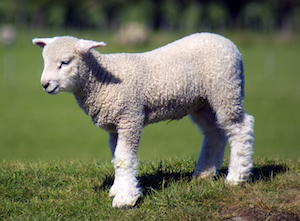[Trigger warning: Well, sort of. I shall allude to sexual assault and animal abuse in this post, but will also generally discuss things that some people might find inappropriate in polite company.]

Whatever feelings you have about this picture, please keep them to yourself.
Alabama’s state senate took a bold stand against bestiality last month, passing a bill that would make it illegal.
Wait, it wasn’t already illegal?
Nope. And it’s not in Texas, either—at least not expressly so.
Only 14 U.S. states and the District of Columbia have statutes specifically prohibiting sexual contact with animals. I’m of two minds on this, really. On the one hand, I am all for protecting animals, who, as far as any of us know, cannot consent to sexual activity with a human. On the other hand, do we actually need another law?
One state where it is expressly illegal is Louisiana, where a man was arrested last summer for alleged sex with livestock. He has been charged with four counts of “crime against nature.” I do not like the sound of that statute.
According to Wikipedia (I’m a lazy researcher sometimes), nine states still use the term “crime against nature.” Most of those statutes have been at least partly invalidated by the U.S. Supreme Court’s 2003 Lawrence v. Texas decision, which found Texas’ “homosexual conduct” statute unconstitutional. Louisiana’s “crime against nature” statute, LA Rev. Stat. § 14:89, defines the offense as:
the unnatural carnal copulation by a human being with another of the same sex or opposite sex or with an animal, except that anal sexual intercourse between two human beings shall not be deemed as a crime against nature when done under any of the circumstances described in R.S. 14:41, 14:42, 14:42.1 or 14:43. Emission is not necessary; and, when committed by a human being with another, the use of the genital organ of one of the offenders of whatever sex is sufficient to constitute the crime. [Emphasis added to the parts that are probably already deemed unconstitutional.]
The exceptions mentioned in the statute, §§ 14:41 et seq., refer to the state’s three rape offenses (aggravated, forcible, and simple). I take this to mean that a person cannot be charged with both rape and crime against nature for a single act in Louisiana.
(Marginally irrelevant side note: Louisiana makes it illegal, with a fine of up to $1 million, to “[c]reate or attempt to create a human-animal hybrid.” LA Rev. Stat. § 14:89.6. I’m glad they’re on top of that.)
I would note that Louisiana also has a “cruelty to animals” statute, LA Rev. Stat. § 14:102.1, which includes prohibitions on the following:
A.(1) Any person who intentionally or with criminal negligence commits any of the following shall be guilty of simple cruelty to animals:
***
(b) Torments, cruelly beats, or unjustifiably injures any living animal, whether belonging to himself or another.
***
(h) Injures any animal belonging to another person.
(i) Mistreats any living animal by any act or omission whereby unnecessary or unjustifiable physical pain, suffering or death is caused to or permitted upon the animal.
It seems like those sections could serve the same purpose as the “crime against nature” statute, as it pertains to animals. It really depends on how one defines “injure.” in this context.
The same goes for Texas, which has two animal cruelty statutes, but no bestiality statutes. First, we have Penal Code § 42.09, “cruelty to livestock animals”:
(a) A person commits an offense if the person intentionally or knowingly:
(1) tortures a livestock animal;
***
(b) In this section:
***
(5) “Livestock animal” means:
(A) cattle, sheep, swine, goats, ratites, or poultry commonly raised for human consumption;
(B) a horse, pony, mule, donkey, or hinny;
(C) native or nonnative hoofstock raised under agriculture practices; or
(D) native or nonnative fowl commonly raised under agricultural practices.(7) “Torture” includes any act that causes unjustifiable pain or suffering.
Similarly, § 42.092 addresses “cruelty to nonlivestock animals:
(a) In this section:
***
(2) “Animal” means a domesticated living creature, including any stray or feral cat or dog, and a wild living creature previously captured. The term does not include an uncaptured wild living creature or a livestock animal.
***
(6) “Livestock animal” has the meaning assigned by Section 42.09.
***
(8) “Torture” includes any act that causes unjustifiable pain or suffering.
(b) A person commits an offense if the person intentionally, knowingly, or recklessly:
(1) tortures an animal or in a cruel manner kills or causes serious bodily injury to an animal
(Note the exception for “wild living creature[s] previously captured.” Huh?)
I’ll leave it to the next lazy researcher to look into whether Texas courts have ever interpreted these statutes to include sexual conduct.
Photo credit: andrewp001 on stock.xchng.


I bet the wild animal thing protects hunters… And the “previously captured” protects pet deer and turkey’s and crap.
From the death/injury part. Pretty sure hunters aren’t allowed to have sex with their prey.